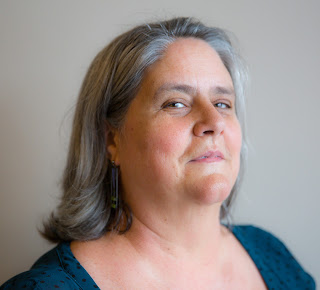One of my favorite things about editing and publishing the LOW DOWN DIRTY VOTE series is the astonishing range of voices the stories present. During submission season, I honestly feel like I’m the richest person in the world because of all the wonderful stories that I get to read before anyone else!
That said, every story is edited. Volume 3, whose theme was “The Color of My Vote” attracted a few first-time writers, which presented an interesting challenge: to edit the stories without killing what was unique about the stories—without quashing their voice. No crime seems as bad to me as killing a writer’s voice.
 |
| Low Down Dirty Vote |
For example, one story came in full of extremely long paragraphs and used a lot of flowery language, uncommon in crime fiction. But the author writes in a tradition different from my own. His voice is deeply woven into the traditions of a different country and life experience from my own. And his unedited story had moved me deeply, sparked my imagination. So when I edited his work, it was with a very light hand, encouraging him to make the work a little more accessible in just a few places without losing the flavor of his world view—his voice.
Another story was so violent I hesitated to publish it. But it was very on-theme, the writing was bold and free of preciousness, and the ending gave me a jolt—challenged me to consider whether I (as the reader) would ever dare to knowingly embrace death for a greater good. People often say that genre fiction seeks first to entertain, but I don’t believe that’s always true. Sometimes we need to read a story that discomforts us.
Writers, especially after a few rejections, can sometimes search for “the rules” that will guarantee them publication. However, I think that leads to making a work sound more generic, not better.
Or maybe that’s just my unique prejudice as an editor?
The stories that thrill me, regardless of genre, are the ones where the writer has taken a risk with structure, theme, character, or point of view in order to show me the world in a brand new way. And in doing so, they challenge me to make sure my editing works with their voice, not against it.
 |
| Mysti Berry lives in San Francisco with her husband graphic novelist Dale Berry and a small black rescue cat. She's published short stories in Alfred Hitchcock's Mystery Magazine, Ellery Queen Mystery Magazine, and many anthologies. Her next short story is coming soon from Down & Out Books in an as-yet-unnamed anthology. She loves to talk about story structure and linguistics. Mysti also loves a good "film noir definition" argument, especially when accompanied by a glass of Dalwhinnie whisky. Her third stint as editor and publisher of the crime-fiction short story anthology series Low Down Dirty Vote launches May 15, 2022. For more information, visit lowdowndirtyvote.com |


Excellent, Mysti. When I saw the title, I thought, The way to edit for voice is not to touch it—and that's exactly what you said.
ReplyDelete"it" means their voice, right? Everybody in the collection had an edit :)
DeleteOoops, this is Mysti, I commented as anonymous by accident!
DeleteAbsolutely agree with not tampering with the voice, Mysti. Also, I agree about embracing a writer's fresh approach, different point of view, new place or mindset, voice that sets him or her apart from the crowd. While not necessarily a rule breaker, I definitely don't mind giving them a significant bend once in a while. Regarding genre fiction, as well as the literary variety, a story needs to grip my mind, touch (or twist) my heart, and pull me into a scene so completely that I can feel what the characters feel and see what they see. If I can help a writer do that (and, of course, correct the mechanical shortcomings), then I will have done my job as an editor. This is a great post. :-)
ReplyDeleteThank you!!!!
DeleteI always encourage people to remember that "literary" is a genre.
Thanks so much for being a guest on Blood Red Pencil, Mysti! And I can vouch for what a great editor (and writer!) you are. Thanks for all your hard work on the anthology, and a big CONGRATS on the stellar BookLife review for LDDV3! https://booklife.com/project/low-down-dirty-vote-volume-3-76867
ReplyDeleteThank you for your funny take on a serious subject in this collection. We all need to smile & laugh as well as gird up for the fight ahead!
DeleteTerrific post, Mysti. I enjoyed reading it and agree completely with the challenges of not messing with voice. Since we're writers, too, it's too easy to slip into the way we would write a story, and that's not our job as editor. Thanks for this insigtful reminder.
ReplyDeletethank you! the last piece of the writing puzzle for me has been this issue of voice. at least, I think it's the last piece :)
DeleteHumility is one of the best traits of a great editor.
ReplyDeleteGreat post, Misti. When you hear people saying they love the way a certain writer writes, it's their voice they're talking about. That element is distinctive in some writers, you can tell without reading the author's name. A good editor leaves it alone. Well done.
ReplyDelete